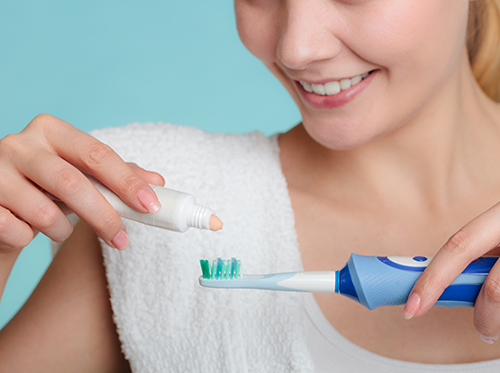What stinks?
December 19th, 2017

Spilling soda on someone’s white shirt, telling an off-color joke at an inappropriate time, or sneezing chewed food all over the dinner table all pale in comparison to the socially unacceptable, embarrassing blunder of having ... bad breath!
Five Possible Causes of Halitosis
- Poor oral hygiene practices. Failing to brush your teeth encourages anaerobic bacteria growth, which involves a type of bacteria that emits volatile sulfur compounds (gases) responsible for smelly breath.
- If you have tonsils, you may have tonsil stones embedded in the fissures of your tonsils. Tonsil stones are hard, tiny pieces of bacteria, dead oral tissue, and mucus that form inside tonsil crevices. When accidentally chewed, they release extremely foul odors that others can smell and you can actually taste.
- You have a chronically dry mouth due to medications, allergies, or persistent sinus conditions that force you to breathe through your mouth. Anaerobic bacteria thrive in dry, stagnant environments where oxygen content is minimal. Consequently, a dry mouth tends to lead to smelly breath.
- You have acid indigestion or GERD (gastroesophageal reflux disease). If you constantly belch stomach gases, this not only causes your breath to smell fetid but it can lead to enamel erosion and tooth decay.
- You have one or more oral diseases: gingivitis, periodontitis, or infections in the gums known as abscesses.
Improving oral hygiene practices may eliminate bad breath, but if brushing, flossing, and rinsing with a fluoride mouthwash twice a day doesn’t stop people from backing away from you when you open your mouth, it’s time to visit Keldsen Family Dental Care.



